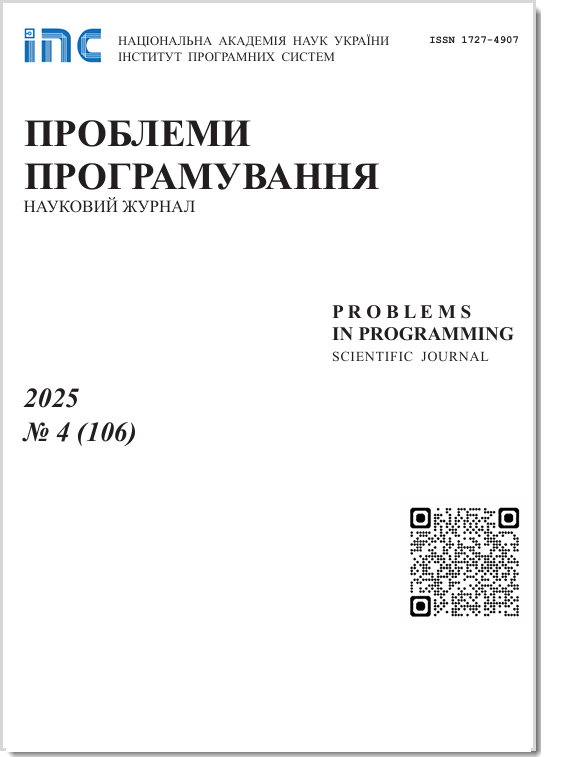Semantic technologies as a tool of information support for professionalization of andragogues
Abstract
The article substantiates the expediency of using semantic technologies as a tool for professionalization of andragogues. Authors determine the basic preconditions that have an influence on the effectiveness of information support for the training and professional activity of andragogues. The clarity of the terminological apparatus in the field of learning and education of adults provides the basis for the further development of a formal model scheme of this subject area that interoperably fixes the various relations between concepts at the level of semantics. The online repository of relevant information resources that supports semantic structuring and unified integration of content provides convenient access to knowledge in the subject area. The availability of an appropriate set of advisory and retrieval services provides personalized information support for the training of andragogues using the content of this repository. The authors proposed the AndraMedia advisory system that is intended for process of informational support of the professionalization of andragogues. It ensures the integration with other intelligent advisory systems, open educational resources, online encyclopedias, ontologies, consulting chatbots and various external knowledge bases. AndraMedia is based on the Semantic Web standards of knowledge representation and processing. Ontological model of AndraMedia system formalizes the relations between the main objects and subjects of the domain of andragogues professional training. The use of pertinent ontologies provides an unambiguous interpretation of the semantics of information resources and their integration with semantically enhanced wiki technologies used to structure content and to search it at the semantic level. The software implementation of the repository is based on MediaWiki and its SemanticMediaWiki plugin.
Prombles in programming 2024; 2-3: 441-448
Keywords
Full Text:
PDF (Українська)References
O.V. Anishchenko, O.V. Banit, T.H. Kalyuzhna, O.H. Kovalenko, V.M. Piddiachyi, A. M. Samko. Professionalization of pedagogical staff in the field of adult education in the conditions of formal and non-formal education: theoretical and methodicalaspect. – Kyiv: Ivan Ziaziun Institute of Pedagogical and Adult Education of the NAES of Ukraine, 2022. – 404 p. (in Ukrainian).
L.B. Lukyanova, Legislative provision of adult education: foreign evidence. Ukrainian Association of Early Childhood Education. Kyiv: "DKS-Center", 2017. (in Ukrainian).
V.S. Shebanin, O.M. Vyshnevska Priority areas of development of adult education: possibilities and practical knowledge. (in Ukrainian),
N. Nychkalo, Andragogy in the system of pedagogical sciences. Adult education: theory, experience, perspectives, (1), 2009, 7-20. (in Ukrainian).
S. Babushko, Adult educators or adult teachers? (the search for an adequate term). Adult education: theory, experience, prospects, 1(12), 2016, P.17–25.
T. R. Gruber . What is an Ontology?
J. Rogushina, A. Gladun, V.Osadchii, S. Pryma, Ontological analysis in the Web. – Melitopol: MDPU, 2015. (in Ukrainian).
T. Tudorache, N. F. Noy, S. Tu, M. Musen,Supporting collaborative ontology development in Protégé, The Semantic Web-ISWC 2008: 7th International Semantic Web Conference, 2008, pp. 17-32. CrossRef
D. L. McGuinness, F. Van Harmelen, OWL web ontology language overview. W3C recommendation, 10(10), 2004.
J. Rogushina, A. Gladun, S. Pryima Ontological Analysis of Outcomes of Non-formal and Informal Learning for Agro-Advisory System. Chapter in book: "Technologies and Innovation", series CCIS, Springer Publishing, Cham, vol. 1309, 2021. - pp. 3-17. CrossRef
J. Rogushyna, A. Gladun Transformation of university libraries into sources of open knowledge based on the semantic expansion of wiki technology. Proc. of scientific works of the International Scientific Conference "Artificial Intelligence in Science and Education" AISE-24, 2024, Kyiv.
DOI: https://doi.org/10.15407/pp2024.02-03.441
Refbacks
- There are currently no refbacks.









